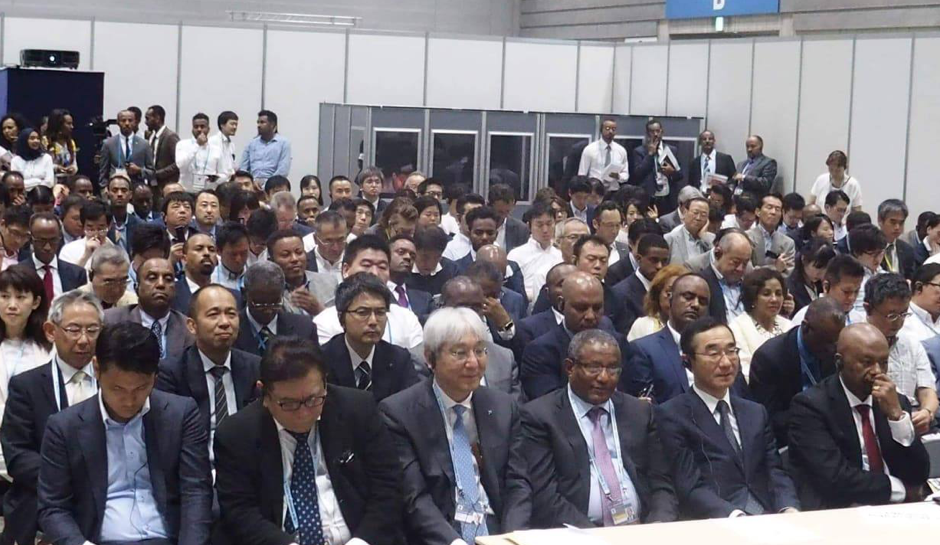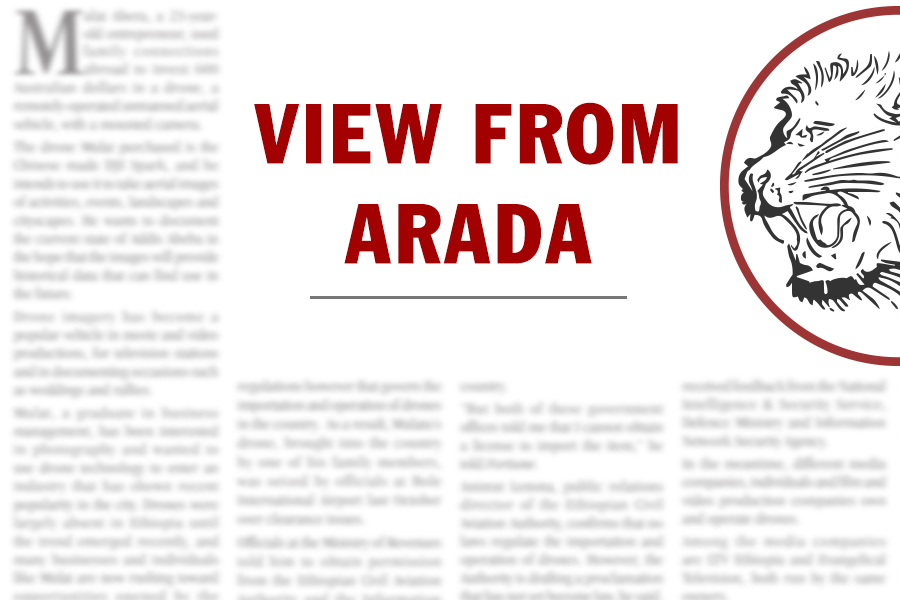
Nov 27 , 2018
By Hanna Haile
Hanna Haile (hannahaile212@gmail.com) is an Ethiopian writer and social worker. She is one of the organizers of Poetic Saturdays at Fendika Cultural Centre in Addis Abeba and at Terara Bar & Kitchen in Hawassa, where a stage is open to those who celebrate art through performances on the first and second Saturday of each month.
Existing in a post-colonial, post-slavery Africa, we must recognise that we have to re-imagine Africa beyond the borders.
In 1948, we can look back at Emperor Haile Selassie’s gesture of offering land in the city of Shashemane for people largely of African descent to make a living. Even though dozens of families took the first plunge, with the many political changes since the fall of the monarchy, much of the population consists of tourists on overstayed visas.
Recently, more and more of them have been given residency cards. The joy shared by this community is truly inspiring. The road has been filled with struggle, but many would not change the fact that they have made Ethiopia their home.
Today, Ghana has declared 2019, “Year of Return”, and extended a global call to Americans of African descent. The nation even naturalises those who would like to become permanent citizens.
A few months ago, I was having lunch with two African-American men who were on their first journey to Ethiopia.
As we shared stories, learning about each other’s culture, one of them said, “There is a lot of fear to being a black person in America,” and later, jokingly staring at the only two Caucasian people in the restaurant, “We aren’t a minority here.”
To them, these comments were a moment of realisation of feeling at home.
The atrocities committed on African-Americans in the United States, especially in the pre-civil war era, are beyond comprehension. They were made not to feel at home, targeted by the law, victimised and villainised, day in and day out.
I have felt the burn of racism when I visit places where I am the only black person. The negative reactions of those who believe I do not belong there is humiliating and scary and leaves one angry.
Yet knowing that I can always come back to a country that may not be perfect but accepts me for who I am makes a difference in how I see the world. For an Ethiopian, such as me, who has lived their entire lives in Ethiopia, the idea of feeling displaced is unsettling.
“It’s just painful to experience each day; it is a matter of colour that makes you an outsider,” one of my closest friends confided in me.
And this sentiment is reiterated by other diaspora and those with African descent that have been forcefully taken from the continent centuries ago from their native lands.
African-Americans leaving their homes and repatriating to Africa is not a solution, but African countries should be able to offer a choice for those who want to become citizens here.
The African Union should be playing a key part in this. Even though it is not a perfect organisation, burdened with the economic and democratic underdevelopment of its member states, it has an important place to play in black history.
In 2016, I remember my disappointment when Haiti was denied associate member status in the African Union. Even though the decision makes geographical sense, we must be able to think beyond that.
A step in recognising our place in this history is important. I have met many who felt a sense of calm being among Africans in Africa. And if nothing else, we should offer black people all over the world a place where, at any time, they can call home.
There, of course, needs to be a structured means of handling such matters, yet maybe we can start with finding inspirations from Ghana, and learn from the challenges by those who have repatriated to Ethiopia.
In the restoration of what was painfully taken away from black communities, African nations can play an influential role in the healing of our brothers and sisters everywhere.
PUBLISHED ON
Nov 27,2018 [ VOL
19 , NO
970]


Fortune News | Aug 31,2019

Sunday with Eden | Feb 10,2024

Editorial | Aug 20,2022

View From Arada | Nov 02,2019

Fortune News | Sep 23,2023

Radar | Oct 14,2023

Radar | Sep 10,2023

Advertorials | May 29,2023

View From Arada | Apr 25,2020

Radar | Aug 20,2022

My Opinion | 131656 Views | Aug 14,2021

My Opinion | 128020 Views | Aug 21,2021

My Opinion | 125983 Views | Sep 10,2021

My Opinion | 123607 Views | Aug 07,2021

Dec 22 , 2024 . By TIZITA SHEWAFERAW
Charged with transforming colossal state-owned enterprises into modern and competitiv...

Aug 18 , 2024 . By AKSAH ITALO
Although predictable Yonas Zerihun's job in the ride-hailing service is not immune to...

Jul 28 , 2024 . By TIZITA SHEWAFERAW
Unhabitual, perhaps too many, Samuel Gebreyohannes, 38, used to occasionally enjoy a couple of beers at breakfast. However, he recently swit...

Jul 13 , 2024 . By AKSAH ITALO
Investors who rely on tractors, trucks, and field vehicles for commuting, transporting commodities, and f...

Jun 28 , 2025
Meseret Damtie, the assertive auditor general, has never been shy about naming names...

Jun 21 , 2025
A well-worn adage says, “Budget is not destiny, but it is direction.” Examining t...

Jun 14 , 2025
Yet again, the Horn of Africa is bracing for trouble. A region already frayed by wars...

Jun 7 , 2025
Few promises shine brighter in Addis Abeba than the pledge of a roof for every family...

Jun 29 , 2025
Addis Abeba's first rains have coincided with a sweeping rise in private school tuition, prompting the city's education...

Jun 29 , 2025 . By BEZAWIT HULUAGER
Central Bank Governor Mamo Mihretu claimed a bold reconfiguration of monetary policy...

Jun 29 , 2025 . By BEZAWIT HULUAGER
The federal government is betting on a sweeping overhaul of the driver licensing regi...

Jun 29 , 2025 . By NAHOM AYELE
Gadaa Bank has listed 1.2 million shares on the Ethiopian Securities Exchange (ESX),...